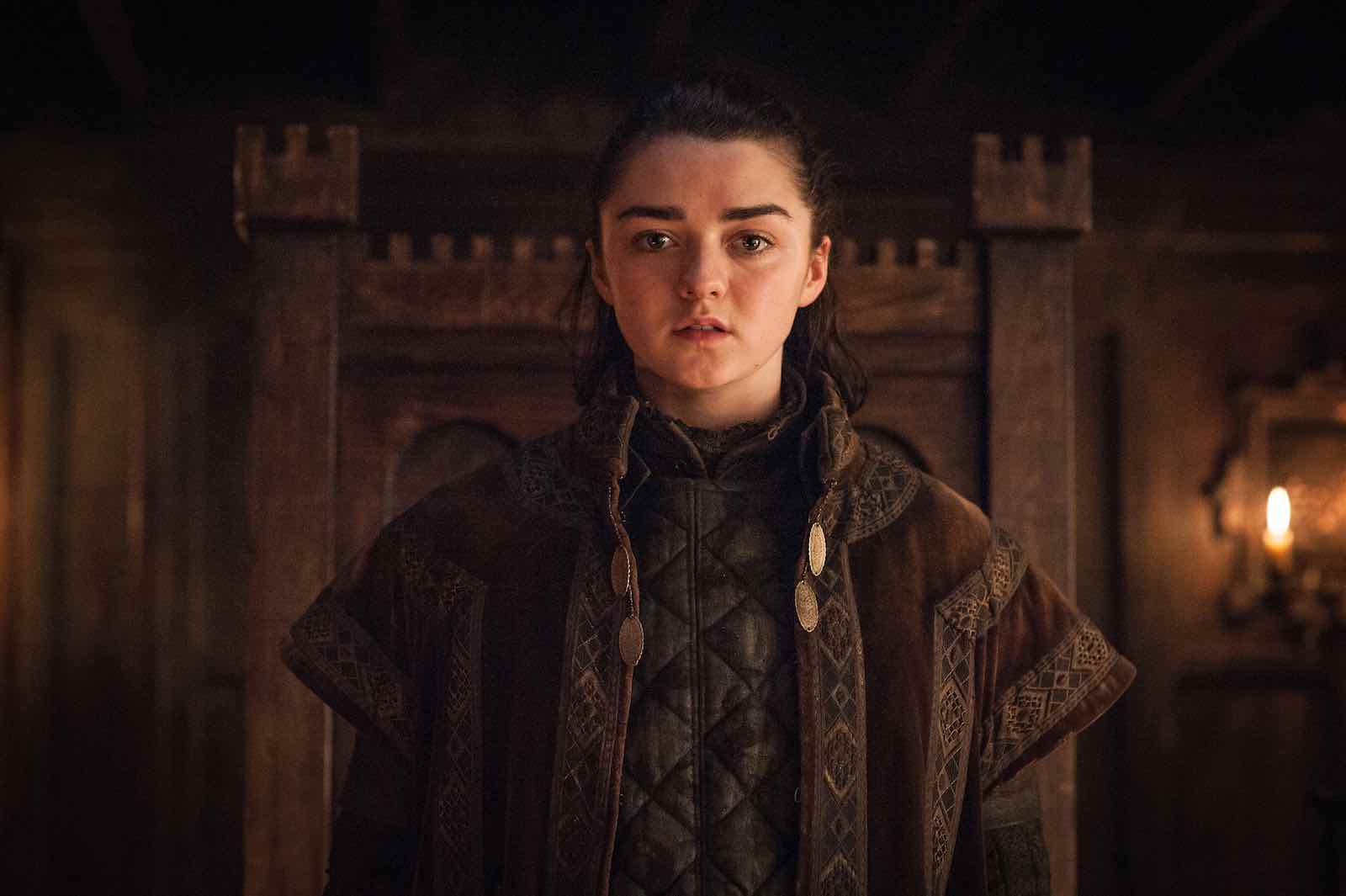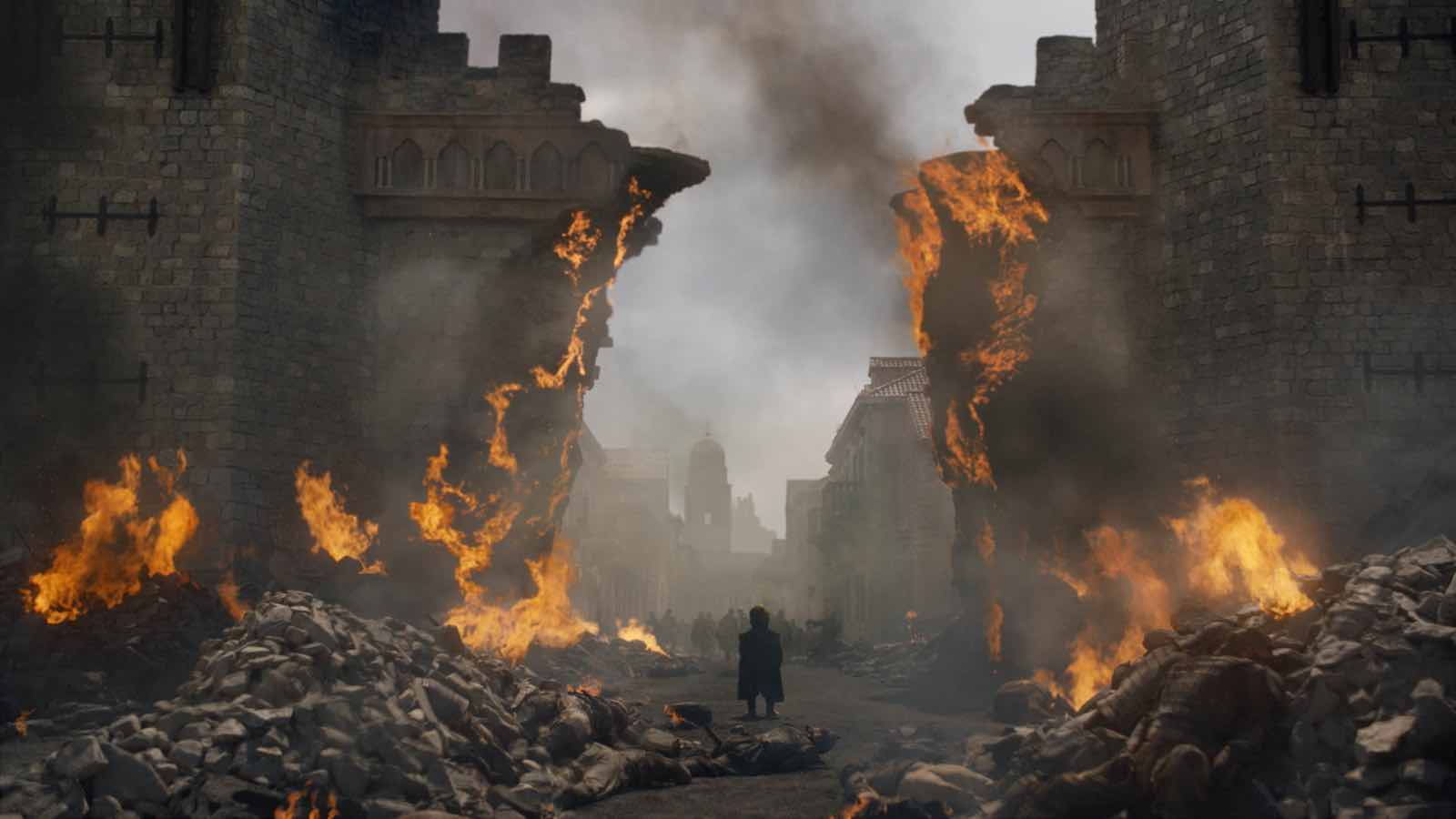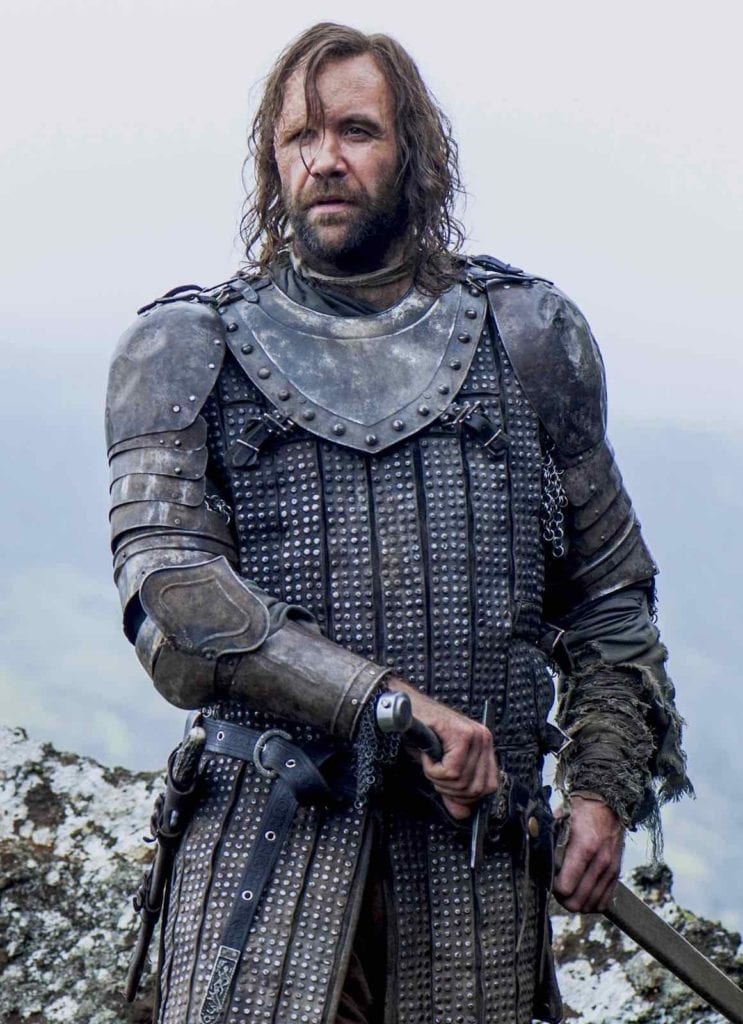
The Hound falling off a cliff: How ‘Game of Thrones’ jumped the shark
Making a great television show requires consistency, and consistency is hard. Not every show has a visionary at the helm to ensure quality down to the last detail of hours upon hours of classic content, like Matthew Weiner on Mad Men (despite a handful of slowish episodes) or David Chase on The Sopranos.
Contrast these series with Mr. Selfridge’s melodramatic, kitschy season three or Sweden’s Äkta Människor‘s (Real Humans) sudden genre shift from the first season’s terse dramedy to the second’s cheesy pulp crime thriller.

Why is it so challenging to ensure the quality of every second of screen time? How do shows lose their way? Much of the time, even shrewd investigators are left guessing how the ball was dropped – until a salacious tell-all exposé reveals the inside narrative of a project’s collapse.
So unless we get the real skinny from the players on set before we get to the next paragraph, let’s theorize. How did Game of Thrones‘s quality control go missing on the wrong side of the Wall? The answer may surprise you.

You win or you die
In 2010, fans of George R. R. Martin’s classic “low fantasy” novel series A Song of Ice and Fire were ecstatic to learn the object of their obsession was headed for the small screen – with Martin on deck playing puppet-master as executive producer, no less. The 2011 series premier did not disappoint: the first season tracks its literary counterpart A Game of Thrones faithfully, with subtle, clever elisions to trim things down to ten episodes.
Boob-tubers unfamiliar with Martin’s sprawling epic were slower to catch on, likely due to the early episodes’ deliberate pace – relying more on narrative osmosis and nudity than plot fireworks. But the show’s ballooning cult audience was rewarded by a season-end shocker that jarringly shifted from the history of a Northern noble family to a continents-wide epic, cementing the series as a must-see.
Season two upped the ante brilliantly, expanding the scope of the plot and introducing new and fascinating cast members (including tasteful CGI dragons), while season three reached an apotheosis of low-fantasy screen production, replete with flawless scripts and gorgeous photography. Game of Thrones had seized the Iron Throne of episodic fantasy storytelling.

Winter is coming
But under the gory, sex-sodden surface brewed trouble. As fans of the books knew all along, Martin’s writing speed hovers at about one-sixth that of the production rate of the show, which had been covering one book per season; showrunners David Benioff & D.B. Weiss would be out of runway in a few short years. At some point, Martin would need to buckle down and complete book six, The Winds of Winter.
Season four saw the team at the helm splitting the sprawling A Feast for Crows into two seasons. Leaving behind the strong template of the narrative arc in the first three seasons – building smoldering plot points for eight episodes to explode in a peak in episode nine and set up the next season in episode ten – season four opted for a choppy mix of ups and downs.
However, the quality of the dialog, acting, direction, editing, score, and visual style remained top-notch, and much of the books’ dense minor-house squabbling story was mercifully excised. The Game was still on.

And now his watch is ended
In 2014, Martin decided to leave the show and concentrate on finishing the next installment of his Song. Fans crossed their fingers, hoping Benioff & Weiss had the cajones and wherewithal to keep the tiller pointed straight at awesome. Their hopes, unfortunately, were dashed as Game of Thrones jumped a shark as big as an undead great white in the perilous seas of Old Valyria.
Not being present in the writers room, I can’t be certain that Martin’s exit is solely responsible for Game of Thrones falling of its quality cliff like the Hound drunk and running from a fire, but season five speaks for itself. In previous seasons, episodes were taut and balanced.

Yet out of the gate, season five’s lugubrious pace – whose cause may or may not have been the showrunners’ desire to stretch the material to the utmost to give Martin time to write them out of their plot predicament – made fifty minutes seem like five hours. Shots linger on characters and scenes, and the plot languishes as scene after glacial scene thuds, almost totally lacking forward momentum.
The dialog lost all pop and zing, not to mention its archaic English flavor. Characters sound like cardboard cutouts of themselves. The plot strikes out in random directions as figures act against their best interests or directly contradict formerly firm convictions.
The score? Oh, the poor score. Where formerly it draped scenes with tasteful classical gravitas, season five’s music took on the lusterless quality of a repeated video game loop. Ridiculously dwarf-laden dragons career around the screen. Huge, expensive, interminable battle scenes attempt to inject excitement, but eschew utterly any reason to root for either side. The following three seasons, unfortunately, carry on in the same vein.

What is dead may never die, but rises again (?)
Other than its beautiful wardrobe styling, Game of Thrones seasons four through eight couldn’t sink any lower – they’re already resting at the bottom of Blackwater Bay. It was a fittingly ironic end for a series that prided itself on slaying sacred cows. Unless there’s a Red Priest of R’hllor around to resurrect the looming spinoffs from D&D’s coldhanded grasp, you might want give up and place your trust in the Many-Faced God.
After all, show-lar morghulis: all shows must die.







